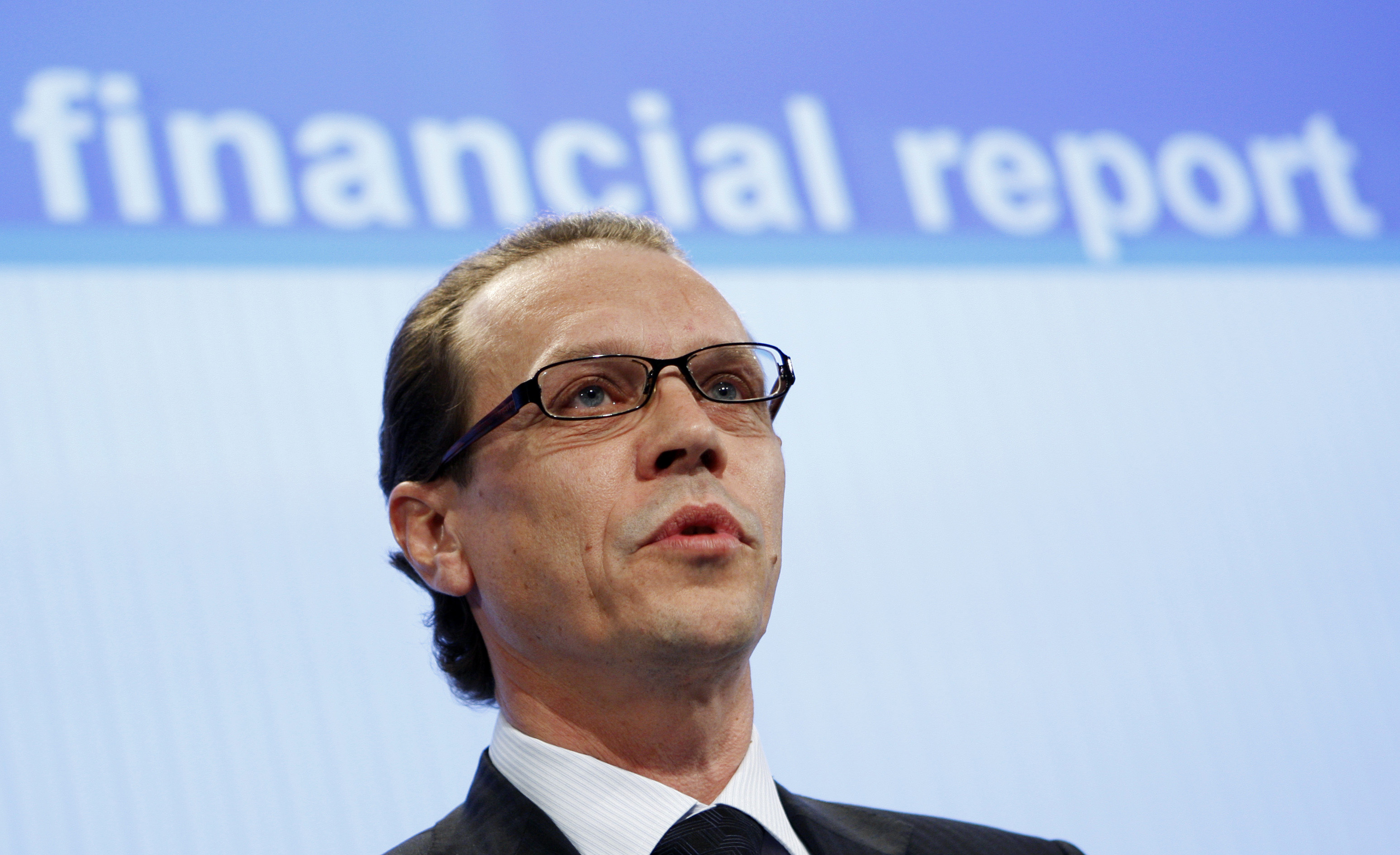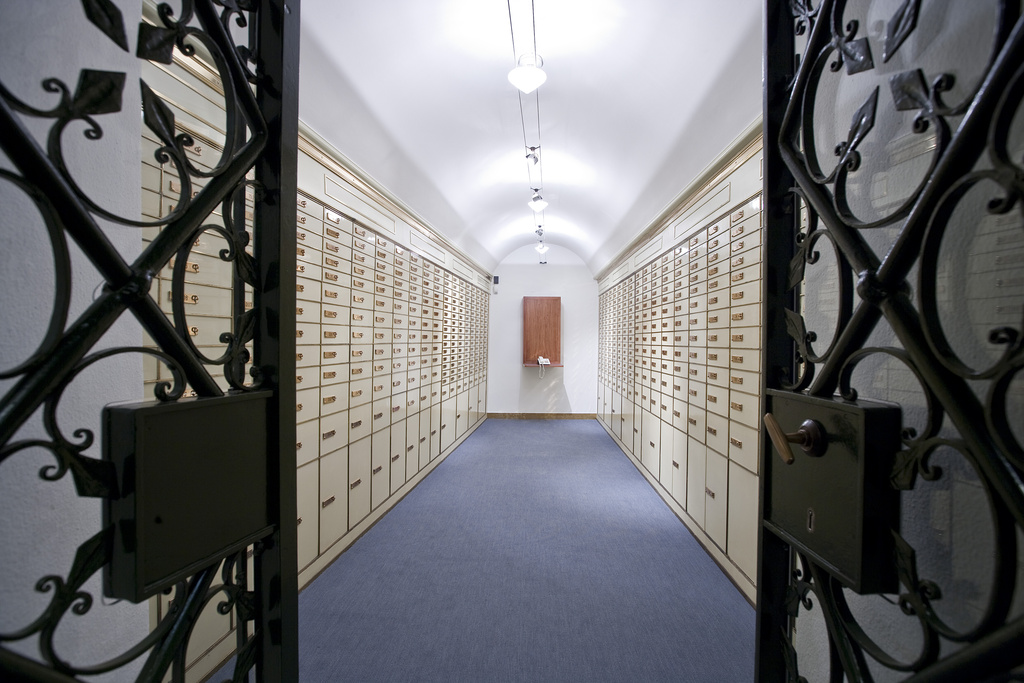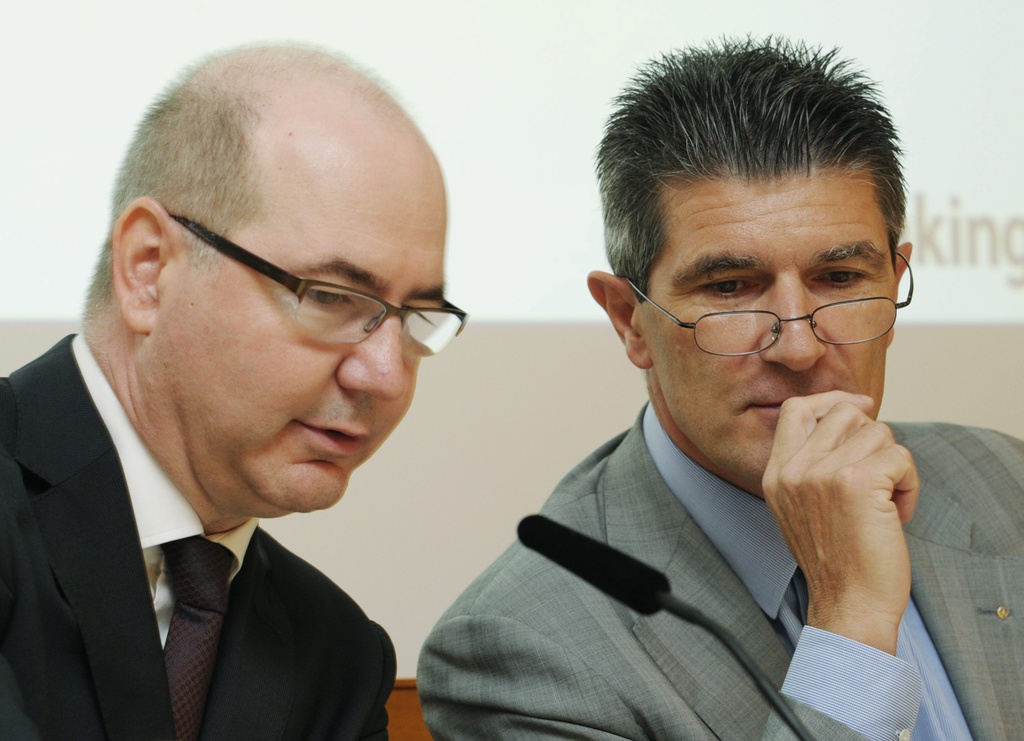Pieces fall into place in tax evasion jigsaw

Efforts by Switzerland to defuse the global tax evasion row have developed into a two-tier process with more headway being made in Europe than the United States.
It was announced on Monday that Credit Suisse had settled with the Public Prosecutor’s Office in Dusseldorf, Germany (to the tune of €150 million or SFr180 million) to avoid tax evasion proceedings against its employees in Germany.
The deal was made public only two days before the signing of a withholding tax settlement between Germany and Switzerland. However in the US, demands for client data could meet with stiff political opposition.
Switzerland’s agreement to pay back lost tax revenues to Germany and Britain also appears to have weakened resistance in Italy to a fiscal resolution while Greece is also looking to negotiate a similar agreement.
The German and British deals, that compel Swiss banks to pay backdated taxes and make sure future deposits are declared, are the way forward in Europe, according to tax expert Peter V Kunz. The agreements preserve banking secrecy by avoiding the need to name any clients.
“They will be the blueprint model for other European states in future,” Kunz told swissinfo.ch. “It is clear that other European countries will follow suit, take the money and get on with life.”
“The US, however, have different ambitions to secure data that could be used in criminal prosecutions of its citizens,” he added.
Regrets
Swiss banks have complied with recent demands to inform the US authorities how many US citizens have accounts with significant amounts deposited.
The chairman of Basel Cantonal Bank, Andreas Albrecht, recently told the Swiss press that he “regretted” the fact that it had taken on UBS clients after Switzerland’s largest bank was prosecuted for aiding US tax evaders.
Swiss Justice Minister Eveline Widmer Schlumpf recently said that she was “shocked” that Swiss banks had poached UBS clients they knew had been evading taxes.
UBS was fined $780 million in 2009 and was later forced to hand over the names of nearly 5,000 clients to the US authorities.
A draft deal between Switzerland and the US, that aims to put an end to the dispute between the two countries, contains a clause that would allow more Swiss banking client names to be revealed if a suspected “pattern of behavior” of aiding and abetting tax evaders could be established.
In an election year in Switzerland, Christian Levrat, leader of the centre-left Social Democrats, told Sunday newspapers that he wanted the pattern of behavior test to be applied to all of Switzerland’s double taxation agreements with other countries.
Life with clean money
But the rightwing People’s Party and the business-oriented Radicals are said to be united in their opposition to the proposed US treaty.
The chances of the US deal being passed by parliament are very slim during election year, according to Kunz. But he believes that politicians might later agree to such a scheme if the electorate could be convinced that it is a good idea.
“The US will continue to be a major issue for Switzerland,” he told swissinfo.ch. “Whether the proposed deal will be passed depends on how the Swiss population reacts. Politicians tend to react to public opinion.”
In the meantime, Swiss banks are pondering a less prosperous future without the flow of untaxed assets from Europe and the US. It is estimated that some SFr600-700 billion ($677-790 billion) of the SFr2 trillion offshore deposits in Switzerland are undeclared.
“The new clean money strategy of the Swiss financial sector will succeed in the long run, but it will not be a smooth transition,” Kunz told swissinfo.ch.
“Many smaller institutions relied heavily on tax evasion money and it will not be easy for them.”
The cherished Swiss banking confidentiality laws have been under constant attack since the financial crisis of 2008-9.
With many developed – and indebted – countries seeing large holes blown into their tax revenues, cracking down on tax evasion suddenly became a priority.
In 2009, Switzerland was forced to concede enhanced information exchange and renegotiate a host of double taxation agreements to get off an Organisation for Co-operation and Development (OECD) grey list of tax havens.
Also in 2009, UBS admitted to aiding and abetting US tax evaders and had to pay a hefty fine. The Swiss government was subsequently forced to hand over the names of 4,450 US clients of UBS to the US authorities.
Several countries, including Britain, Italy, the US and Germany, offered tax amnesties in 2009 and 2010 to give citizens the chance to come clean about tax evasion.
Discovery of tax cheats was enhanced by the illegal sale of Swiss bank client data by a whistleblower. Germany and France were the main purchasers of the controversial data CDs, but information was passed on to other countries.
Switzerland has agreed to pay back past taxes and regularise future deposits with Germany and Britain.
The US is currently pursuing its clampdown on other Swiss banks. Credit Suisse was recently informed that it was under investigation while several other banks, including cantonal owned enterprises, are thought to have fallen under the spotlight.

In compliance with the JTI standards
More: SWI swissinfo.ch certified by the Journalism Trust Initiative













You can find an overview of ongoing debates with our journalists here . Please join us!
If you want to start a conversation about a topic raised in this article or want to report factual errors, email us at english@swissinfo.ch.